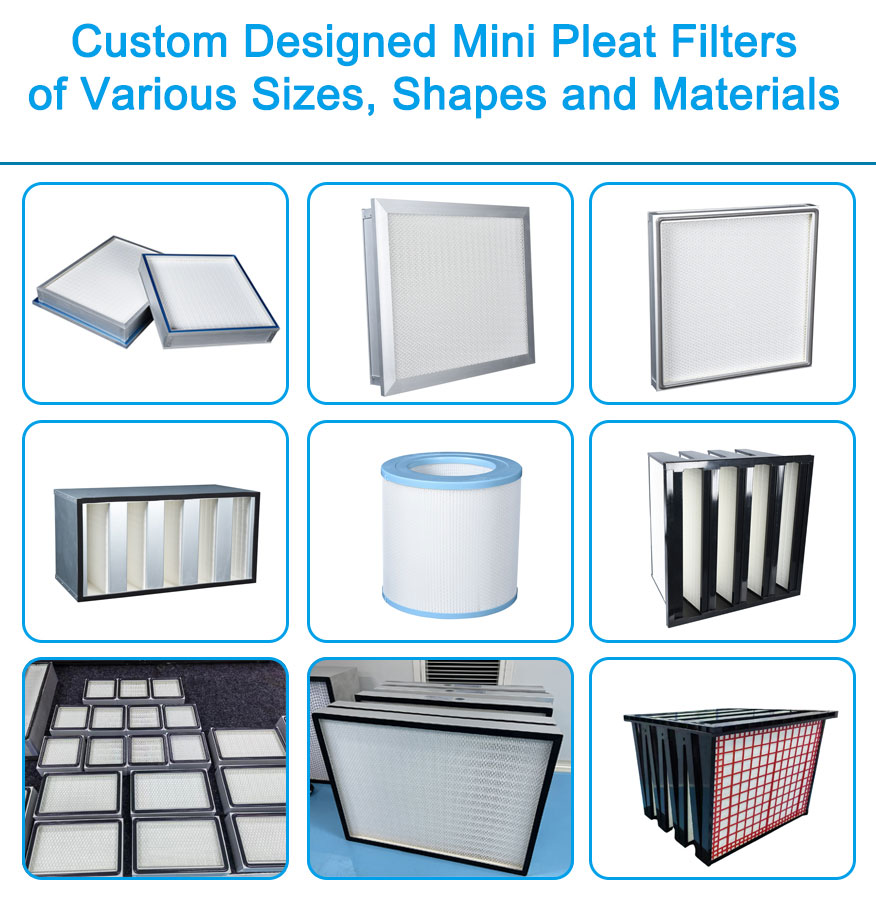 February 06, 2025
February 06, 2025
When it comes to improving indoor air quality, HEPA filters are often hailed as the gold standard. But what exactly are HEPA filters, and why are they so effective? In this comprehensive guide, we’ll dive deep into the world of HEPA filters, exploring how they work, their benefits, and why they might be the perfect addition to your home or office. Whether you’re dealing with allergies, asthma, or just want to breathe cleaner air, this guide has got you covered.

HEPA stands for High-Efficiency Particulate Air. A HEPA filter is a type of mechanical air filter that works by forcing air through a fine mesh that traps harmful particles such as pollen, pet dander, dust mites, and even tobacco smoke. To be classified as a true HEPA filter, it must capture at least 99.97% of particles that are 0.3 microns in diameter. This makes them incredibly effective at removing airborne contaminants.
HEPA filters are made up of a dense mat of randomly arranged fibers, typically composed of fiberglass. These fibers create a maze-like path for air to travel through. As air passes through the filter, particles are trapped in one of three ways:
Interception: Larger particles are caught by the fibers as they follow the air stream.
Impaction: Medium-sized particles collide with the fibers and stick to them.
Diffusion: Smaller particles, especially those below 0.1 microns, move erratically and are more likely to be captured by the fibers.
This multi-faceted approach ensures that HEPA filters can capture a wide range of particle sizes, making them highly effective.
Improved Air Quality: HEPA filters are excellent at removing airborne pollutants, which can significantly improve the air quality in your home or office.
Allergy and Asthma Relief: By capturing allergens like pollen, pet dander, and dust mites, HEPA filters can help reduce symptoms for those who suffer from allergies or asthma.
Reduction of Airborne Pathogens: HEPA filters can also trap bacteria and viruses, reducing the spread of illnesses.
Odor Reduction: While HEPA filters alone don’t remove odors, they can be combined with activated carbon filters to tackle unpleasant smells.
Protection for Vulnerable Groups: For infants, the elderly, or those with compromised immune systems, HEPA filters provide an extra layer of protection against harmful airborne particles.
HEPA filters are versatile and can be used in various settings:
Home Air Purifiers: Portable air purifiers with HEPA filters are popular for improving indoor air quality in bedrooms, living rooms, and kitchens.
Vacuum Cleaners: Many high-end vacuum cleaners now come with HEPA filters to ensure that dust and allergens are trapped and not released back into the air.
HVAC Systems: Some HVAC systems can be fitted with HEPA filters to clean the air throughout your entire home.
Cars: HEPA filters are also available for car air conditioning systems, providing cleaner air during your commute.
Hospitals and Laboratories: Due to their high efficiency, HEPA filters are commonly used in environments where air purity is critical.
When selecting a HEPA filter, consider the following factors:
True HEPA vs. HEPA-Type: Ensure that the filter is labeled as True HEPA to guarantee it meets the 99.97% efficiency standard. HEPA-type filters may not offer the same level of performance.
Room Size: Make sure the filter is appropriate for the size of the room where it will be used. Most filters will specify the maximum square footage they can effectively cover.
CADR (Clean Air Delivery Rate): This rating indicates how quickly the filter can clean the air in a room. A higher CADR means faster air purification.
Filter Replacement: Check how often the filter needs to be replaced and the cost of replacement filters. Regular maintenance is key to keeping your HEPA filter effective.
Additional Features: Some HEPA filters come with extra features like UV-C light for killing bacteria or activated carbon for odor removal.
To keep your HEPA filter functioning at its best, follow these maintenance tips:
Regular Replacement: Replace the filter according to the manufacturer’s recommendations, typically every 6 to 12 months.
Vacuum Pre-Filters: If your HEPA filter has a pre-filter, vacuum it regularly to remove larger particles and extend the life of the main filter.
Check for Damage: Inspect the filter periodically for any signs of damage or clogging, which can reduce its effectiveness.
Clean the Unit: Wipe down the exterior of the air purifier or vacuum to prevent dust buildup.
HEPA Filters Remove Odors: While HEPA filters are excellent at capturing particles, they don’t remove odors. For odor removal, look for a filter that includes activated carbon.
All HEPA Filters Are the Same: Not all HEPA filters are created equal. True HEPA filters meet strict standards, while HEPA-type filters may not offer the same level of efficiency.
HEPA Filters Produce Harmful Ozone: True HEPA filters do not produce ozone. However, some air purifiers that use ionization technology alongside HEPA filters may emit ozone, so it’s important to check the specifications.
HEPA filters are a powerful tool for improving indoor air quality and protecting your health. Whether you’re looking to reduce allergens, eliminate airborne pathogens, or simply breathe cleaner air, a HEPA filter can make a significant difference. By understanding how they work, where to use them, and how to maintain them, you can make an informed decision about whether a HEPA filter is right for you.
Investing in a HEPA filter is an investment in your health and well-being. So why wait? Start enjoying cleaner, fresher air today!
If you found this guide helpful, please share it with friends and family who might benefit from cleaner air. And don’t forget to leave a comment below with your thoughts or questions about HEPA filters—we’d love to hear from you!